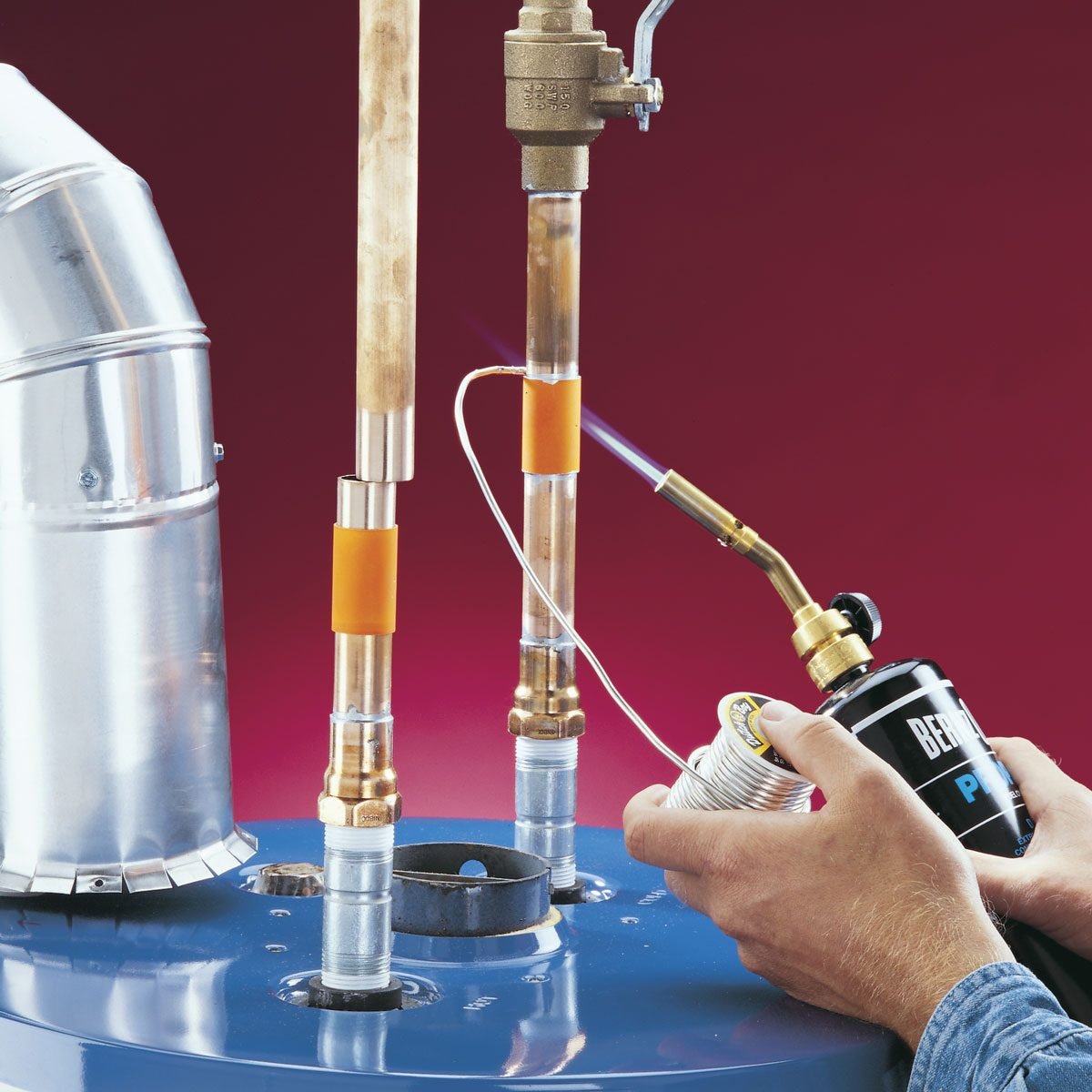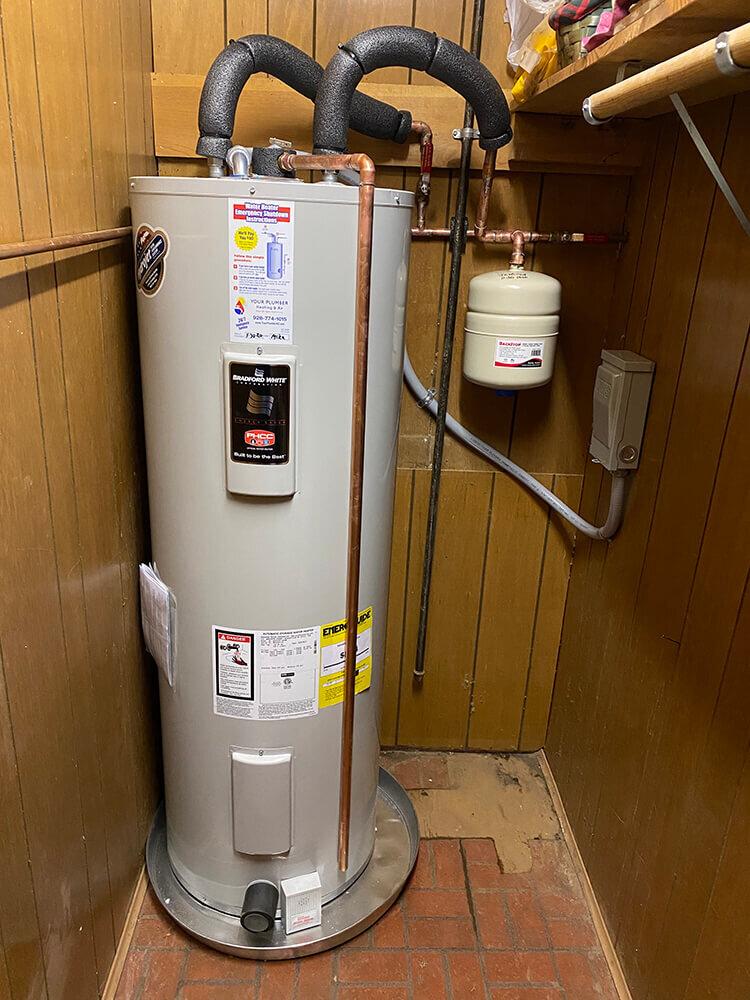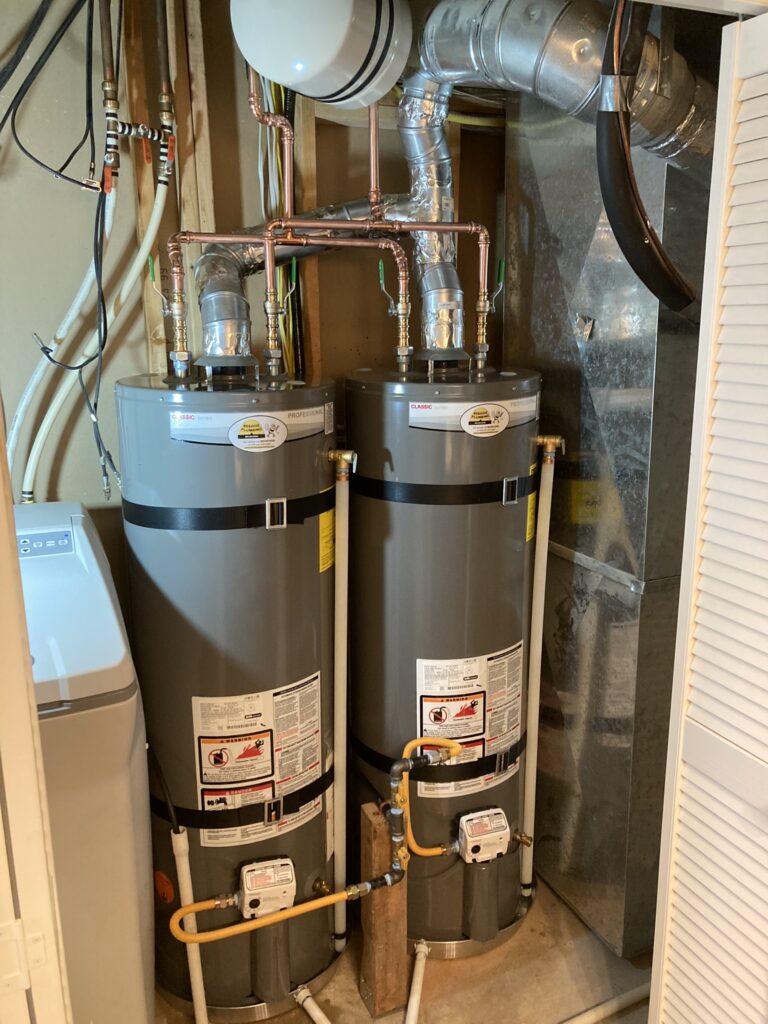Gas Leak Repair by Certified Technicians for Maximum Safety at Home
Gas Leak Repair by Certified Technicians for Maximum Safety at Home
Blog Article
Total Overview to Water HeaterSetup and Replacement
Understanding the intricacies of water heating system installation and substitute is critical for property owners seeking to make certain efficiency and reliability in their warm water supply. From picking the proper kind and size to implementing a seamless installation procedure, several elements have to be considered to stay clear of typical challenges.
Kinds of Water Heating Units
When thinking about hot water heater installment and replacement, it is important to understand the different sorts of hot water heater available on the market. The most typical kinds consist of container water heating systems, tankless hot water heater, heatpump hot water heater, and solar hot water heater.
Storage tank water heating systems are typical systems that store a certain quantity of warm water, making them readily available when required. In contrast, tankless water heating systems give hot water on demand, removing the demand for storage space.
Warm pump water heaters use electrical power to transfer warmth from the air or ground to warm water, supplying considerable energy financial savings yet calling for more space and details setup conditions. Lastly, solar hot water heater harness solar energy to warmth water, giving a green choice with prospective long-lasting price financial savings, although they often require a backup system for cloudy days.
Understanding these choices makes certain informed choices concerning installment and replacement, catering to specific demands and choices.
Choosing the Right Size
Selecting the proper size for a water heating system is important to make certain ideal efficiency and performance. An unit that is also little will battle to meet home needs, resulting in inconsistent warm water availability and enhanced power consumption. On the other hand, an extra-large water heating unit can lead to unnecessary energy waste and higher utility expenses.
To determine the ideal size, consider the household's top warm water usage. This can be calculated based upon the number of passengers and their regular warm water requirements. As an example, a family of 4 might need a hot water heater with an ability of 50 to 80 gallons, depending on the use patterns, such as synchronised showers and laundry.
In addition, evaluate the recuperation price, which measures just how rapidly a heating system can restore warm water after it has actually been utilized. For tankless designs, focus on the circulation rate, measured in gallons per min (GPM), to guarantee it satisfies the family's synchronised need.

Setup Process Review

Next, the old device should be detached and removed, taking treatment to follow local codes and guidelines regarding disposal. When the old system is out, the new water heating system can be positioned in location. This action involves connecting the supply of water lines, ensuring that all fittings are safe and secure and leak-free.
After developing water connections, it's important to connect the power supply, whether electric or gas, adhering to the maker's guidelines meticulously. Once all links are next made, the system must be full of water, and the power can be turned back on. Lastly, it is essential to check for leaks and make sure the water heating unit is working appropriately before completing the setup procedure.
Common Setup Mistakes

Another regular error is disregarding to comply with neighborhood codes and policies. Failing to stick to these requirements can not just cause safety threats however may additionally cause costly penalties or the need for costly reinstallation. Furthermore, improper venting is an essential issue. Poor ventilation can cause hazardous gas buildup, posing serious health threats.
Stopping working to protect connections or utilizing the incorrect type of installations can lead to leakages and water damages. By avoiding these common installment errors, property owners can ensure their water heating unit runs safely and effectively, maximizing performance and durability.
Upkeep Tips for Long Life
Correct upkeep of a water heating unit is important for its durability and optimal efficiency. Regular examinations and maintenance can prevent expensive repairs and prolong the device's lifespan. Begin by examining the temperature setup; it should commonly be established in between 120 ° F and 140 ° F for optimal power performance and safety and security.
Every six months, look at more info flush the storage tank to eliminate debris buildup, which can harm home heating performance and create deterioration. To do this, shut off the heater, link a hose to the drain valve, and let the water run till it is clear.
Anode poles ought to be evaluated annually and replaced when they are rusted. These rods assist protect against tank rust by attracting destructive elements in the water.
Additionally, inspect the pressure alleviation shutoff on a regular basis to ensure it is operating correctly. This shutoff is crucial for preventing excessive stress accumulation within the storage tank.
Lastly, think about arranging a professional upkeep check every few years for comprehensive inspections and maintenance. By adhering to these upkeep tips, property owners can dramatically improve the efficiency, security, and life expectancy of their water view it heating units, making certain trusted hot water for many years to come.
Conclusion
In verdict, appropriate installment and maintenance of water heaters are vital for ensuring efficiency and long life. By comprehending these crucial aspects, home owners can achieve a reliable warm water supply while decreasing prospective concerns connected to water heater procedure.
Recognizing the intricacies of water heater setup and replacement is important for property owners looking for to guarantee effectiveness and reliability in their warm water supply.Container water heating systems are conventional systems that save a certain volume of warm water, making them easily available when required. In comparison, tankless water heating systems offer hot water on need, getting rid of the requirement for storage space. Selecting a water heating unit that is either also little or also large can lead to ineffectiveness, resulting in inadequate hot water supply or extreme energy intake.
By comprehending these important aspects, homeowners can accomplish a reliable hot water supply while decreasing potential problems connected to water heater operation. plumber Denton.
Report this page